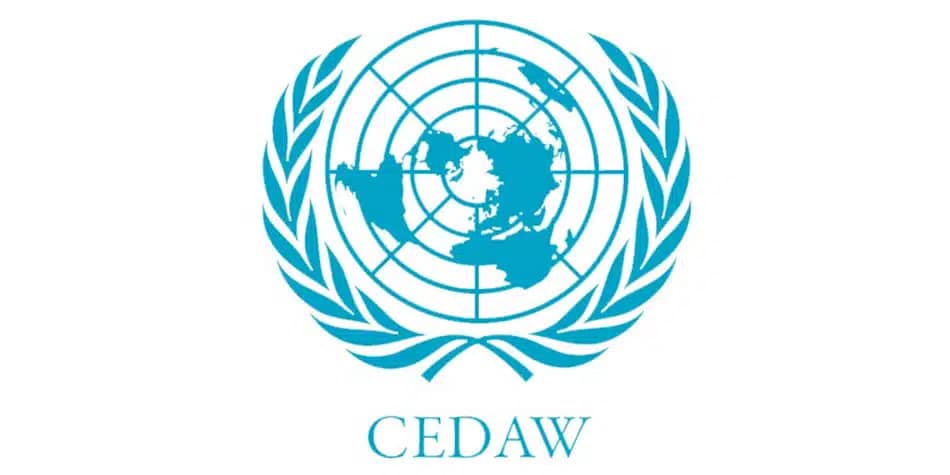
UN High Level Panel on the death penalty and limitation to the most serious crimes
Advocacy
On February 28 2023, the United Nations (UN) Human Rights Council held its biennial high-level panel on the issue of the death penalty.
This year, the panel focused on limiting the death penalty to the most serious crimes in accordance with Article 6 of the International Covenant on Civil and Political Rights. Various members of the World Coalition, including Justice Project Pakistan, Harm Reduction International, the International Federatation of Christian Actions for the Abolition of Torture (FIACAT) and Together Against the Death Penalty (ECPM), spoke out to highlight the lack of “the most serious crimes” compliance in several countries, both in law and in practice, and to call for the universal abolition of the death penalty.
During the panel, the progress made since the previous UN highlight panel on the death penalty in February 2021 was highlighted and applauded. Panelist Commissioner Idrissa Sow, Chairperson of the Working Group on the Death Penalty and Extrajudicial, Summary or Arbitrary Executions in Africa of the African Commission on Human and Peoples’ Rights, recalled the most recent abolitions in Africa, namely Zambia (December 2022), Central African Republic (May 2022) and Equatorial Guinea (September 2022). Mr. Sow highlighted the undeniable progress made on the African continent where twenty-six states have fully abolished the death penalty and at least fourteen have adopted a moratorium on executions. During the discussion, the European Union representative also congratulated Armenia and Kazakhstan for ratifying the Second Optional Protocol to the International Covenant on Civil and Political Rights (ICCPR), aiming at abolishing the death penalty.
Panelist Ms. Azalina Othman Said, Minister of Law and Institutional Reform of Malaysia, also reported on progress. She recalled that in June 2022, an announcement was made by the government of Malaysia to abolish the mandatory death penalty and that the government is currently studying the possibility of reviewing the sentences of some 1,320 people sentenced to death. Ms. Said explained that while the death penalty has not been completely abolished in Malaysia, the abolition of the mandatory death penalty is an accepted position for the country.
Representatives from countries that have recently abolished the death penalty such as Zambia and Sierra took the floor to encourage states that retain the death penalty to abolish it. In this regard, the delegation of Sierra Leone recalled the importance of the Universal Periodic Review process as a strategic tool for the abolitionist struggle. Representatives from other African countries such as South Africa and Burkina Faso took the floor to join the call for universal abolition.
Additionally, this panel was an opportunity for various speakers to encourage states that still apply the death penalty to limit it to “the most serious crimes”, in accordance with article 6 of the ICCPR. The UN High Commissioner for Human Rights, Mr. Volker Türk, and many other speakers warned about the application of the death penalty to crimes that do not reach this threshold of “most serious crimes” set by international law. It was recalled that the death penalty is still used for drug offences, espionage, economic crimes, blasphemy, apostasy, homosexual relations, adultery, and for the legitimate exercise of civil liberties. Mr. José Manuel Santos Pais, member of the UN Human Rights Committee, recalled that the issue of the death penalty is addressed by Article 6 on the right to life of the ICCPR and that the right to life is inherent to every human being and is a prerequisite to the enjoyment of all other rights. In her presentation, Ms. Mai Sato, Associate Professor at Monash University Law School, Director of Eleos Justice and Deputy Director of CrimeInfo, pointed out that of the 79 countries that retain the death penalty, only two meet the international standard of limiting it for the most serious crimes. The criminalization of certain offences was also questioned. Ms. Sato recalled that crimes such as adultery, consensual same-sex relations, blasphemy, and apostasy should not be criminalized at all. Various speakers, such as the International Lesbian, Gay, Bisexual, Trans and Intersex Association (ILGA), pointed out that to this day, 11 countries still sentence to death consensual same-sex sexual relationships. The use of women’s rights to justify the application of the death penalty to punish perpetrators of rape was also highlighted as an alarming point by Ms. Sato.
Ms. Sarah Belal, Executive Director of Justice Project Pakistan (JPP), offered the audience hope as she recounted how JPP and its partners, through hard work, determination, and collaboration, have made significant progress in Pakistan. Sarah Belal recalled the importance of contextualized work, adapted to the political and socio-cultural realities of the country, and based on extensive evidence-based research. She also emphasized the important collaboration with the judiciary system, which can play a key role in aligning a country with the standard for the most serious crimes. In Pakistan, as a result of strategic work led by JPP (capacity building of the judiciary on international law, strategic trials, etc.), more systematic reference to international law by the Pakistani High Court has been observed. This led to a decision prohibiting the execution of mentally ill persons, directly affecting the standards contained in Article 6 of the ICCPR. For Ms. Belal, “[if] a strategic approach is taken, it is possible to bring the use of the death penalty in line with international standards without generating public reaction or outrage.”
The use of the death penalty for political purposes, including for silencing opponents, was also raise as a key issue. Representatives of many states warned about the situation in Iran where the authorities have executed a significant number of people in the last few months following mass protests.
On the sidelines of the debate, five representatives of retentionist states, some speaking on behalf of a group of countries, recalled that in their view, the issue of abolition of capital punishment is not the subject of international consensus and that each state should be able to apply its penal system sovereignly without external interference.
Categories
Public Opinion






